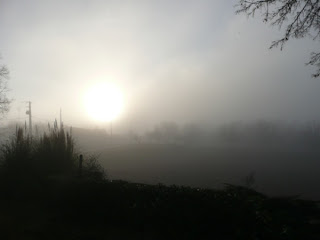I happened to overhear a philosophical conversation this afternoon, it was arranged by
Filosofiska rummet and took place in a library since the subject was literature and what use we have of literature, if there is any use at all.
I thougt of course of my dear Dorothea, the fictional character who kindly has lent her name to this blog. She means a lot to me, and has meant a lot to many a reader throughout the years. In the radio show they mentioned novels like Uncle Tom's Cabin which is said to have changed the course of history when Abraham Lincoln was inspired by it, which led to the civil war and slavery was abolished in all united states of America.
Both Middlemarch and Uncle Tom's Cabin are exemples of novels who have had a positive impact on readers, culture and society. However, a man in the audience of Filosofiska rummet asked about dangerous books and he mentioned Goethe's The Sorrows of Young Werther (Die Leiden des jungen Werthers) which inspired young men to commit suicide when it first was published. Then I thought of the novel I am reading for the moment: Madame Bovary by Gustave Flaubert.
This novel is about a young woman married to a widower who admires her youth and beauty, but doesn't give her the life she dreams of. Through reading novels she has gained a world view which differs a lot from the daily life in a small rural town in 19thC France. In fact, the novels are depicted as if they are poisoning her mind with unrealistic expectations eventually leading her into disaster.
«Pendant six mois, à quinze ans, Emma se graissa donc les mains à cette poussière des vieux cabinets de lecture. Avec Walter Scott, plus tard, elle s'éprit de choses historiques, rêva bahuts, salle des gardes et ménestrels. Elle aurait vivre dans quelque vieux manoir, comme ces châtelaines au long corsage qui, sous le trèfle des ogives, passaient leurs jours, le coude sur la pierre et le menton dans la main, à regarder venir du fond de la campagne un cavalier à plume blanche qui galope sur un cheval noir. Elle eut dans ce temps-là le culte de Marie Stuart et des vénérations enthousiastes à l'endroit des femmes illustres ou infortunées.» Flaubert p.96-97
The dangerous reading of Emma Bovary ends in tragedy. Like the historical women she admired, her end is terrible. So why do teachers of language persist in forcing children and adolescents to read novels at school? Maybe because of the fact which one of the philosophers pointed out; "People don't kill themselves today when they read about Werther." But is that because literature doesn't matter that much to young people any more, or is it because good literature, in the long run, only brings tolerance, maturity, empathy and linguistic brilliance, as we language teachers claim?









